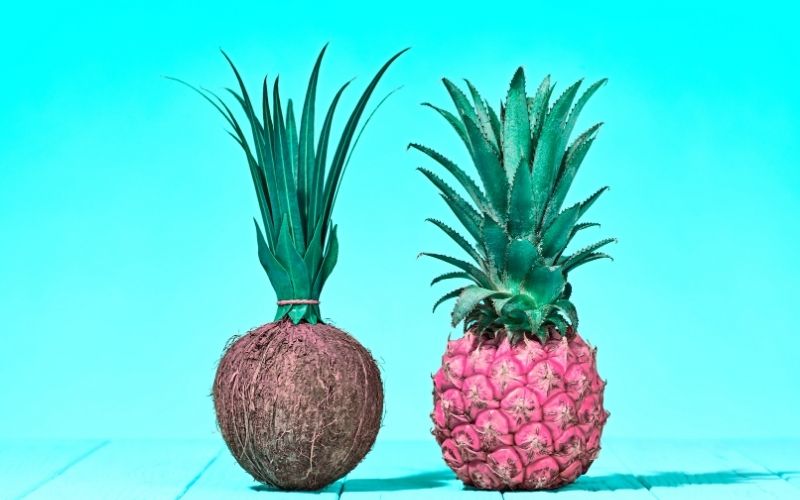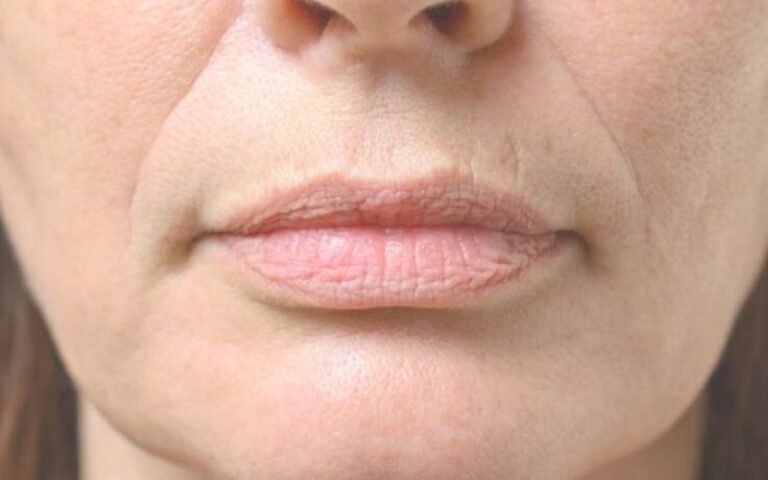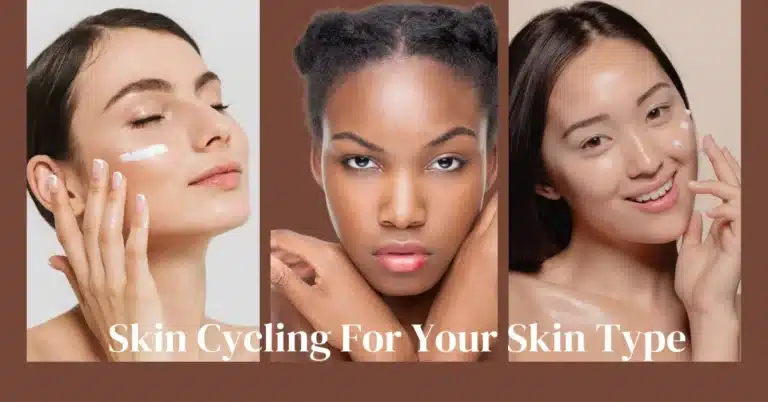6 Fruits That Can Help You Rid Acne

Yep, nature’s candy is back at it again.
Fruits are not only delicious and refreshing, they’re also full of antioxidants that fight off inflammation and promote good health.
While all fruits are rather nutritious and beneficial, some contain more goodies than others when it comes to vitamins, minerals, and antioxidants.
Before we dive into the nutrient-packed fruits in this list, let’s clear up any myths that are floating around in regards to fruit and skin:
Fact vs. myth
Myth: Fruits contain sugar which is a culprit to acne, so you should avoid eating fruits.
Fact: While sugar has been linked to an increase in acne (12), the sugar within fruit is processed in our bodies differently (13) than refined sugars that are found in candy, cake, etc. Most people can benefit from adding more fruit to their diet due to the high levels of vitamins, fiber, and antioxidants.
Myth: Many fruits have a high glycemic index, therefore it will spike insulin and wreak havoc on my skin.
Fact: While there is some truth to this, that some fruits have a high glycemic index, it is much more accurate to judge a fruit by its glycemic load (14). Glycemic index tends to relate to a fixed amount of a food rather than the effect per serving. There are plenty of fruits with low glycemic loads, and as long as you’re not going way overboard with it, chances are you’ll be A-okay.
That being said, here are the top 6 fruits to help your skin get back to the glowing state it deserves to be in:
1. Pomegranate
Pomegranates have been used as preventative and therapeutic agents since ancient times (4).
This fruit really knows no limits when it comes to healing our bodies. In addition to the vitamin C, K, and potassium it offers, it also includes a variety of phytochemical which are the reason behind its powerful anti-inflammatory potential (4).
Not only are pomegranates great for skin health, but they also taste AMAZING. Seriously.
Next time you’re at the store, be sure to grab one…or two…or three, before you head back home.
2. Kiwifruit
You read that right. Kiwifruit.
Kiwifruit has been tested to be extremely high in vitamin C and also contains an array of other nutrients such as dietary fiber, potassium, vitamin E, and folate (9).
Vitamin C and E (10) are known to be extremely beneficial for skin health providing both healing and protective properties — both of which our skin can’t get enough of!
To go along with this impressive variety of vitamins and nutrients, the kiwifruit also contains a diverse antioxidant profile which are not only valuable to your skin health, but your overall health as well.
While the slightly furry outside skin can be consumed, many people prefer to peel the outside and enjoy the sweet, tasty insides of the fruit.
3. Blueberries
Who doesn’t love blueberries?
Thankfully, blueberries have sprouted on Earth with amazing health benefits to go along with their great taste.
Blueberries are very high in vitamin C and vitamin K — both of which play a role in your skin health. Just one cup of blueberries provides 36% of your daily recommended vitamin K intake and 24% of your daily recommended intake of vitamin C (3).
Along with these vitamins, blueberries are known to be one of the most antioxidant-rich foods out there.
Antioxidants have been researched to have profound effects on your health overall to reduce the probability of disease and slow the signs of aging (2).
So yes, this definitely a worthy excuse to dump an extra cup of blueberries into your morning oats.
4. Strawberries
You guessed it! Everyone’s favorite made the list — and for good reason.
These berries are highly ranked as a phenomenal source of total polyphenols and antioxidant capacity among the fruits and vegetables in the US diet.
Strawberries are also known to have very high levels of vitamin C. In fact, one serving of strawberries contains up to 50% of your daily recommended (8) intake of vitamin C!
Vitamin C is required for the biosynthesis of collagen which plays an enormous role in our skin health (10).
In addition, vitamin C is an excellent physiological antioxidant and has shown effects of regenerating other antioxidants within the body such as vitamin E (10).
Strawberries also include amounts of salicylic acid which is a historically known acne-fighting ingredient. Before you go slathering strawberries all over your face, try these strawberry facial mask recipes.
5. Watermelon
Watermelon is not only your tastebuds best friend, but it should also be your skins, too.
Watermelon is made up of 92% water (11) which makes it extremely hydrating for your body and skin.
In addition to this, it includes an array of B vitamins and is especially present in the forms of B1 and B6 vitamins (11) which are known to be beneficial for skin protection and have healing properties (5).
Watermelon also includes vitamin C, potassium, and magnesium. It also is a rich source of B-carotene which acts as an anti-oxidant and precursor of vitamin A — all of which are helpful in getting the glowing skin you want and deserve.
Watermelons are generally inexpensive and readily available throughout the year and especially during summers.
This is definitely something you’ll want to add to your clear skin diet.
6. Cherries
Cherries!
Cherries are a rich source of polyphenols and vitamin C which have great antioxidant and anti-inflammatory properties.
To add to this, experiments have been conducted (1) on participants consuming cherries that indicated cherry consumption to be linked to decreased oxidative stress and inflammation.
With limited numbers, cherry consumption also indicated improved sleep in the experiment participants (1) due to the content of melatonin (a chemical that induces sleep) found within cherries.
Improved sleep can be very beneficial to skin health.
Be sure to consume cherries in their natural form rather than the ones that have added sugars and other artificial colors/flavors!
The verdict
Fruits are an extremely important part of a nutrient-rich diet which may have a strong effect on your overall skin health. Some of the most vitamin and antioxidant-rich fruits are:
- Pomegranate
- Kiwifruit
- Blueberry
- Strawberry
- Watermelon
- Cherry
While most fruits are very healthy, some contain more vitamins, nutrients, and/or antioxidants than others which can lead to greater health benefits.
Be sure to include some of these fruits into your diet on a daily basis and your skin is going to love you for it. Healing from the inside is one of the best skincare routines out there and not only will your skin reap the benefits, your overall health will too!
- Ames, B. N., et al. “Oxidants, Antioxidants, and the Degenerative Diseases of Aging.” Proceedings of the National Academy of Sciences of the United States of America, vol. 90, no. 17, Sept. 1993, pp. 7915–22.
- Basu, Arpita, et al. “Strawberries Decrease Atherosclerotic Markers in Subjects with Metabolic Syndrome.” Nutrition Research (New York, N.Y.), vol. 30, no. 7, July 2010, pp. 462–69. PubMed Central, doi:10.1016/j.nutres.2010.06.016.
- Blueberries, Raw Nutrition Facts & Calories. https://nutritiondata.self.com/facts/fruits-and-fruit-juices/1851/2. Accessed 21 Jan. 2021.
- Kelley, Darshan S., et al. “A Review of the Health Benefits of Cherries.” Nutrients, vol. 10, no. 3, Mar. 2018. PubMed Central, doi:10.3390/nu10030368.
- Naz, Ambreen, et al. “Watermelon Lycopene and Allied Health Claims.” EXCLI Journal, vol. 13, June 2014, pp. 650–60.
- Office of Dietary Supplements – Vitamin C. https://ods.od.nih.gov/factsheets/VitaminC-HealthProfessional/. Accessed 21 Jan. 2021.
- Peng, Cheng, et al. “Biology of Ageing and Role of Dietary Antioxidants.” BioMed Research International, vol. 2014, 2014, p. 831841. PubMed, doi:10.1155/2014/831841.
- Pullar, Juliet M., et al. “The Roles of Vitamin C in Skin Health.” Nutrients, vol. 9, no. 8, Aug. 2017. PubMed Central, doi:10.3390/nu9080866.
- Rembe, Julian-Dario, et al. “Effects of Vitamin B Complex and Vitamin C on Human Skin Cells: Is the Perceived Effect Measurable?” Advances in Skin & Wound Care, vol. 31, no. 5, May 2018, pp. 225–33. PubMed, doi:10.1097/01.ASW.0000531351.85866.d9.
- Richardson, David P., et al. “The Nutritional and Health Attributes of Kiwifruit: A Review.” European Journal of Nutrition, vol. 57, no. 8, 2018, pp. 2659–76. PubMed Central, doi:10.1007/s00394-018-1627-z.
- Vučić, Vesna, et al. “Composition and Potential Health Benefits of Pomegranate: A Review.” Current Pharmaceutical Design, vol. 25, no. 16, 2019, pp. 1817–27. PubMed, doi:10.2174/1381612825666190708183941.
- Katta, Rajani, and Samir P. Desai. “Diet and Dermatology.” The Journal of Clinical and Aesthetic Dermatology, vol. 7, no. 7, July 2014, pp. 46–51.
- Is Sugar in Fruit Bad for You? 25 June 2019, https://www.medicalnewstoday.com/articles/325550.
- Vega-López, Sonia, et al. “Relevance of the Glycemic Index and Glycemic Load for Body Weight, Diabetes, and Cardiovascular Disease.” Nutrients, vol. 10, no. 10, Sept. 2018. PubMed Central, doi:10.3390/nu10101361.





